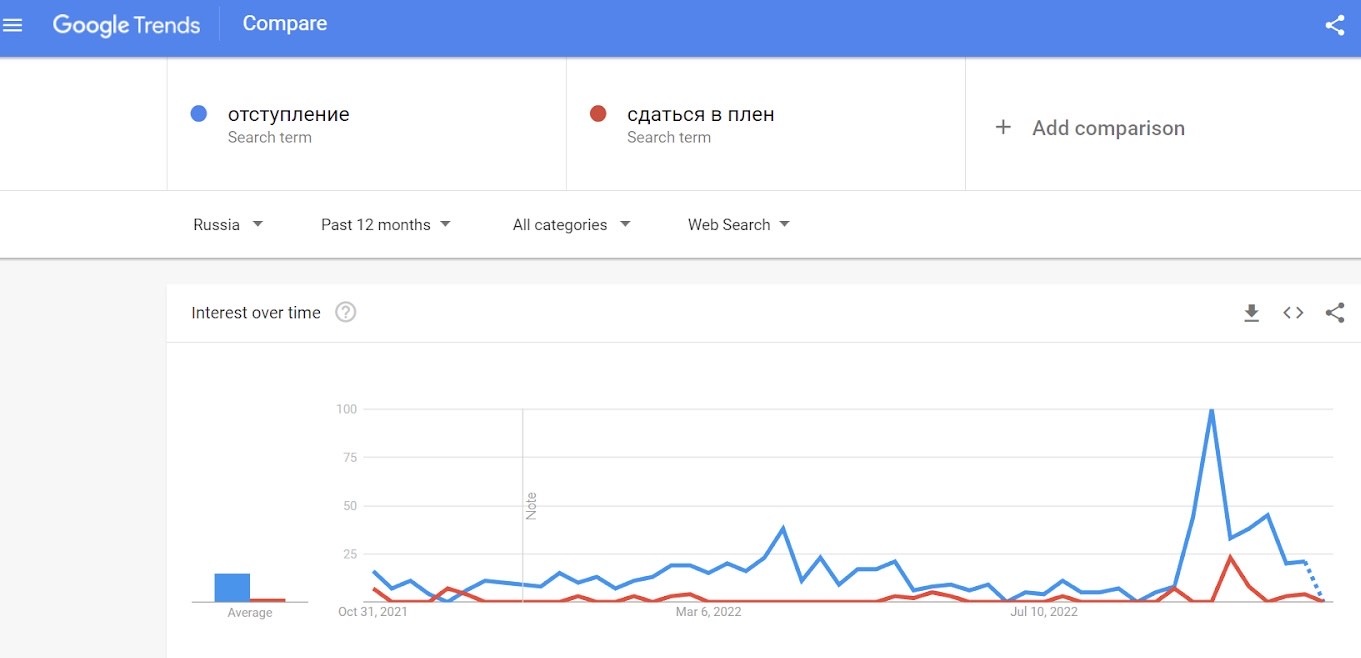Analysis of online search service statistics in Russia indicates a shift in the mood of Russian society in September and October. Mobilization and nuclear war appear to interest Russians far more than the original goals of Vladimir Putin’s so-called “special military operation.”
Google Trends data reveals the most requested word in Russia during the last 12 months to be “mobilization.” Other popular search queries include “Ukraine-people,” “Ukraine-country in Europe,” and “VPN.”
VPN stands for “Virtual Private Network” and describes the opportunity to establish a protected network connection when using public networks. VPNs encrypt internet traffic and disguise users’ online identities. This makes it more difficult for third parties to track a user’s activities online and steal data.
The growth of VPN requests shows that many Russians are seeking to avoid propaganda and obtain information from the outside world. They might also be using such services to access banned sites such as Instagram.
In an interview with Kyiv Post, Peter Pomerantsev, British journalist and author of “This Is Not Propaganda” and “Nothing Is True, and Everything Is Possible”, said that research request statistics provide the most reliable indicator of Russian society’s opinions.
“One should monitor indicators like that – not those about the war apologists and adversaries. It’s all hogwash. One should focus on indirect indicators. For example, the things Russians look up in Yandex [Russia’s main search engine] will tell you far more about public sentiment.”
According to Yandex statistics, search requests for “mobilization” in Russia grew sharply from mid-August and reached more than 50 million in September. Searches for the term “nuclear war” also reached half a million requests in the same month – their highest level so far during the war.
According to Google Trends and Yandex analysis, Russians have shown little or no interest in recent months in the “denazification” and “demilitarization” targets of the Russian invasion of Ukraine. Google searches for these two words grew rapidly at the start of 2022 and peaked in the first week of the invasion, followed by a sharp decline to very low levels from May onwards. Searches for “demilitarization” for example, reached 1.5 million in mid-February, before declining to 69,000 in September.

Graph: Yandex searches for “Demilitarization” (January to October 2022)
At the same time, Russians are much more interested in “retreat” and “how to surrender.” The graph below shows Google Trends data from Oct. 31 2021 to the present day, with “retreat” denoted by the blue line and “how to surrender” denoted by the red line. Searches for the former increased sharply in September, followed (to a slightly lesser extent) by the latter in October.

Graph: Google Trends searches for “Retreat” and “How to Surrender” (October 2021 to October 2022)
In summary, the trend changes suggest that the original goals of the so-called “special military operation” have become less important to Russians than the possible risk of “nuclear war” as the war has gone on.
